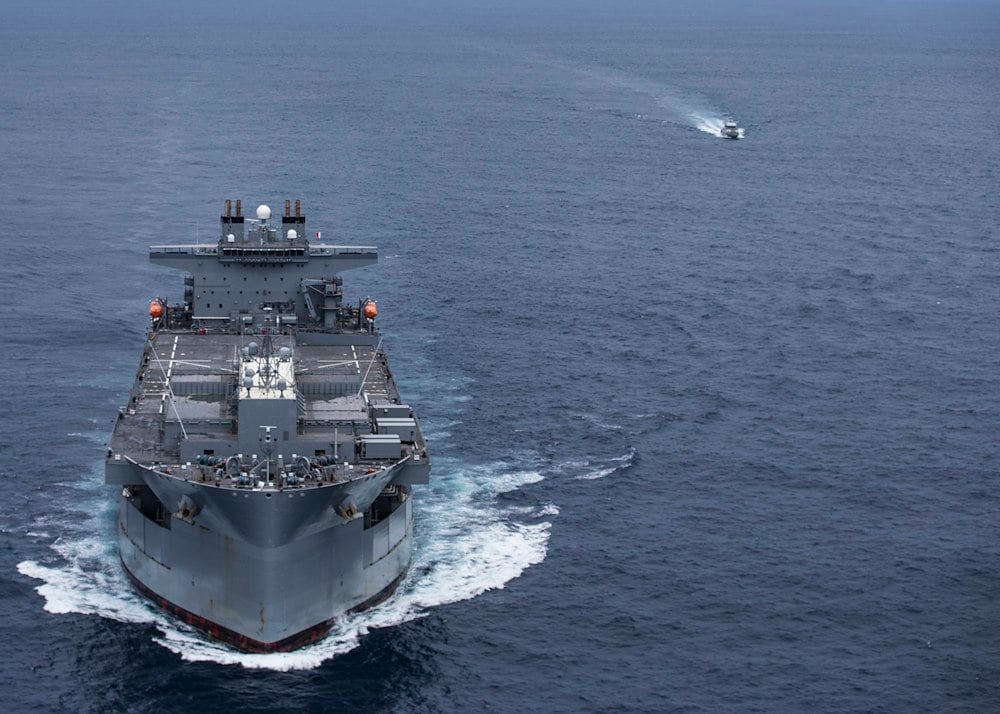
KUALA LUMPUR – The U.S Navy and Coast Guard remain committed to supporting and building the maritime security capabilities of its African partners, senior leaders from both services said in an Oct. 5 conference call.
Adm. Karl Schultz, commandant of the U.S. Coast Guard, and Adm. Robert Burke, commander of U.S. Naval Forces Europe-Africa and NATO Allied Joint Force Command Naples stressed that their services are committed to working jointly with African regional partners in building up maritime security in Africa and meeting threats posed to the region.
Speaking as part of a conference call earlier this week, Burke stated that cooperation between the U.S, African partner nations and European partners operating in the region was essential to overcome the security challenges and also build up the capabilities of African nations. The goal is to allow them to provide their own security in their own territorial waters, and also to help them preserve their sovereign rights and exclusive economic zones.
“We’ve got a lot of European nations that visit and come and help; the United States Navy and Coast Guard are there periodically. And sometimes we’re coming with slightly different syllabus in hand, and sometimes we’re picking up at a different part in the syllabus, and it’s confusing to the nation,” Burke said. “We have a NATO Strategic Direction South function, which we refer to as the African hub, which is really designed at helping Africans identify solutions to African problems and bringing together all the right players – regional political leaders, military leaders, academic experts, whatever it takes to solve those issues. And we’re using that NATO organization to bring together U.S. Navy, European navies, the U.S. Coast Guard, and others to further organize and refine this.”
A key focus of the Coast Guard’s work in Africa is illegal, unreported, or unregulated (IUU) fishing. The U.S is particularly concerned when IUU is perpetrated or abetted by state actors.
“Such states may use government resources to support unlawful fishing operations, encourage or assist their commercial fishing fleets to violate sovereign waters and exclusive economic zones, obtain dubious licensing and other certifications through illegal arrangements with corrupt officials, or even intimidate legitimate local fishermen using armed vessels and unsafe navigation practices,” Schultz said. When asked if this was specific to Chinese ships conducting such activities in Africa, he stated that the U.S was looking at any nation across the globe that was conducting IUU activities, and not just China. But he noted that “it is a fact that China has the largest distant-water fleet, and that’s 4,600 vessels. There’s also estimates of up to 16,000 vessels that show Chinese characteristics that some are stateless, some have done some things with flag states”.
In regard to the impact of COVID-19 on operations and engagements in Africa, both admirals said while at-sea operations have been minimally impacted, some engagements on the ground were affected due to COVID-19 risks. In August, at the request of the Republic of Cabo Verde government, the cutter USCGC Bear (WMEC-901) conducted training and joint patrols. Bear embarked with two Cabo Verde ship-riders with multiple interdictions, boarding at sea, and one potential counter-narcotic case carried out. He added that the Coast Guard would continue to push ship deployments to both the African continent and other parts of the world. But the Coast Guard was forced to cancel three mobile training team evolutions and 15 resident courses, though the service hopes to mitigate that and future efforts via virtual engagement.
Burke also mentioned that the Expeditionary Sea Base USS Hershel ‘Woody’ Williams (ESB-4) was currently in the Gulf of Guinea working with African partners. U.S Naval Forces Africa also runs an exercise program in Africa called the Express Series, which includes the Obangame Express (West African coast), Cutlass Express (East African coast) and Phoenix Express (North African waters), with each exercise addressing a number of law enforcement-related scenarios from smuggling and illicit fishing to piracy.
“We were able to conduct the majority of what we wanted to do in Africa with the exception of a number of portions of Obangame Express, which was scheduled for really late summer and early fall this year, and COVID really just wasn’t going to allow us to have the person-to-person interaction that we needed to have for the training for the law enforcement techniques, the boarding techniques, the person-to-person hands-on training that we needed to do,” Burke said. As a result these were all postponed, with March 2021 being the projected date to carry the exercises out. Exercises at sea with allied and partner nations that did not involve much person-to-person interactions continue to be carried out “and I would tell you that the vast majority of our at-sea exercises fall into that category,” Burke said.
Both commanders stressed the commitments of their respective commands to supporting each other in the region and building out partner nation maritime capabilities against all maritime threats.
“The United States Coast Guard remains committed to supporting our Naval Forces Africa teammates here in the region and building out partner nation maritime capabilities against all maritime threats,” Schultz said. “And we are looking to help synchronize efforts of those like-minded partners. The Coast Guard has limitations in capacity, but if we can put the Coast Guard capabilities, authorities, human-to-human interactions in the right places supporting the Naval Forces Africa team, I think we can make a real impact in the region.”
Burke noted that “the Coast Guard is an absolutely vital partner for us here at Naval Forces Africa, and we couldn’t do what we do with our African nation partners without the Coast Guard’s help.”





